Why Are The Freeways So Crowded?
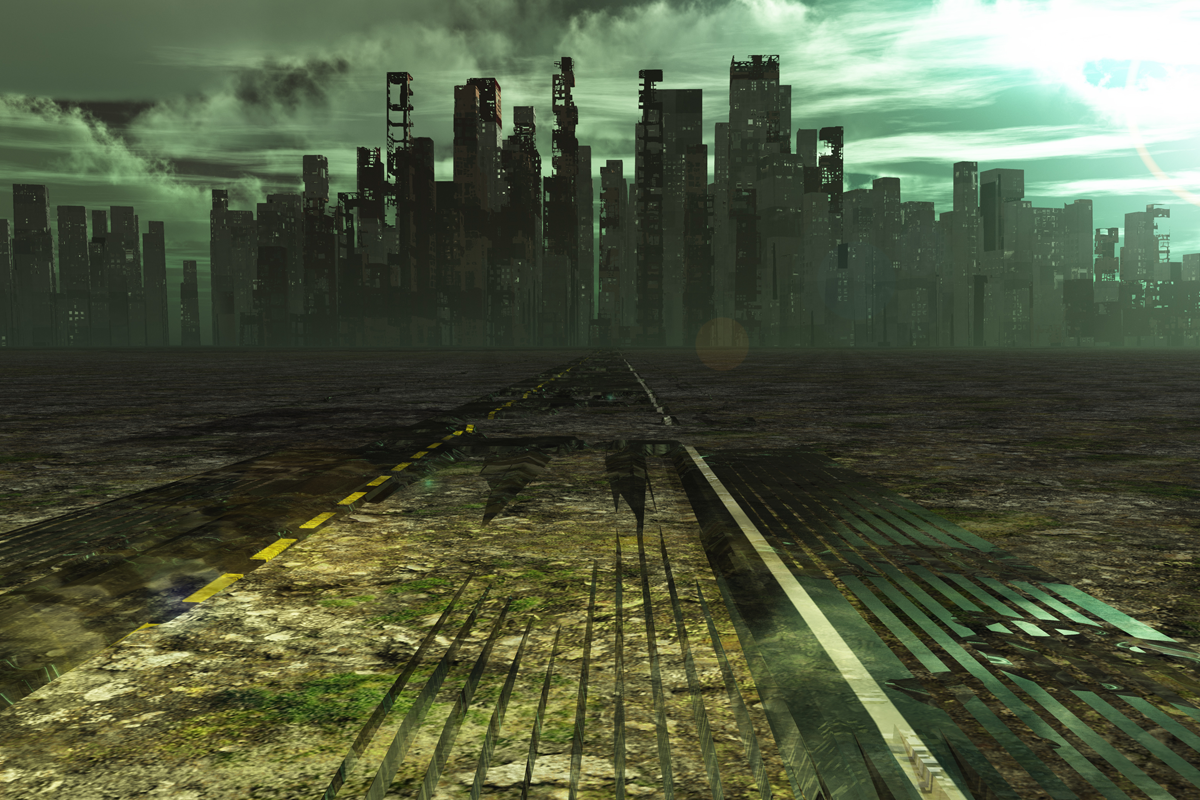
This is a simple idea from economics that has far reaching ramifications. You’ll find it among roommates, farmers and even in the ocean. It’s called the “tragedy” of the commons because that’s how it always ends. Opposite of how everybody thinks it will end.
Set Up
Imagine you’ve got ten farmers and each farmer has a hundred animals. Their farms are all in a huge circle, like a gigantic pizza. Each one of their farms is a pizza slice of a few hundred acres each. In the very center of the farms is a circle, which is twice the size of any single farmer’s land.
The actual numbers don’t matter that much. But let’s assume each farmer has 300 acres, for a total of 3000 acres of private land (300 x 10) and this common area in the center is about 600 acres.
This means this center area is twice the size of each of the farmer’s privately owned land. But this center area is the common area. It belongs to everybody. There are no rules on usage. It’s set up from the idea that “people take whatever they need, when they need.” The assumption is that people are generally good, and they will generally share common resources equally. Which people do. Until they don’t.
Tragedy
The tragedy part comes when each farmer realizes something. That if they make sure their animals only graze on their private land, they’ll be eating their own resources. They’ve got to keep up their private land. That costs money. But if they let their animals graze on the common land, they don’t have to pay anything.
The tragedy is that when all the farmers realize this, what inevitably happens is the common areas is consumed quickly. This common area was set up assuming people were moral and fair and wouldn’t take than their share. Unfortunately, this is the absolute quickest way to make sure any natural resources are obliterated.
No Ownership
If nobody owns them, then nobody feels responsible for their upkeep. You combine the idea of “this is free” with “I don’t have to worry about keeping it up” that’s a deadly combination that ends in the destruction of all property that is owned by nobody and everybody at the same time.
Accelerated Death
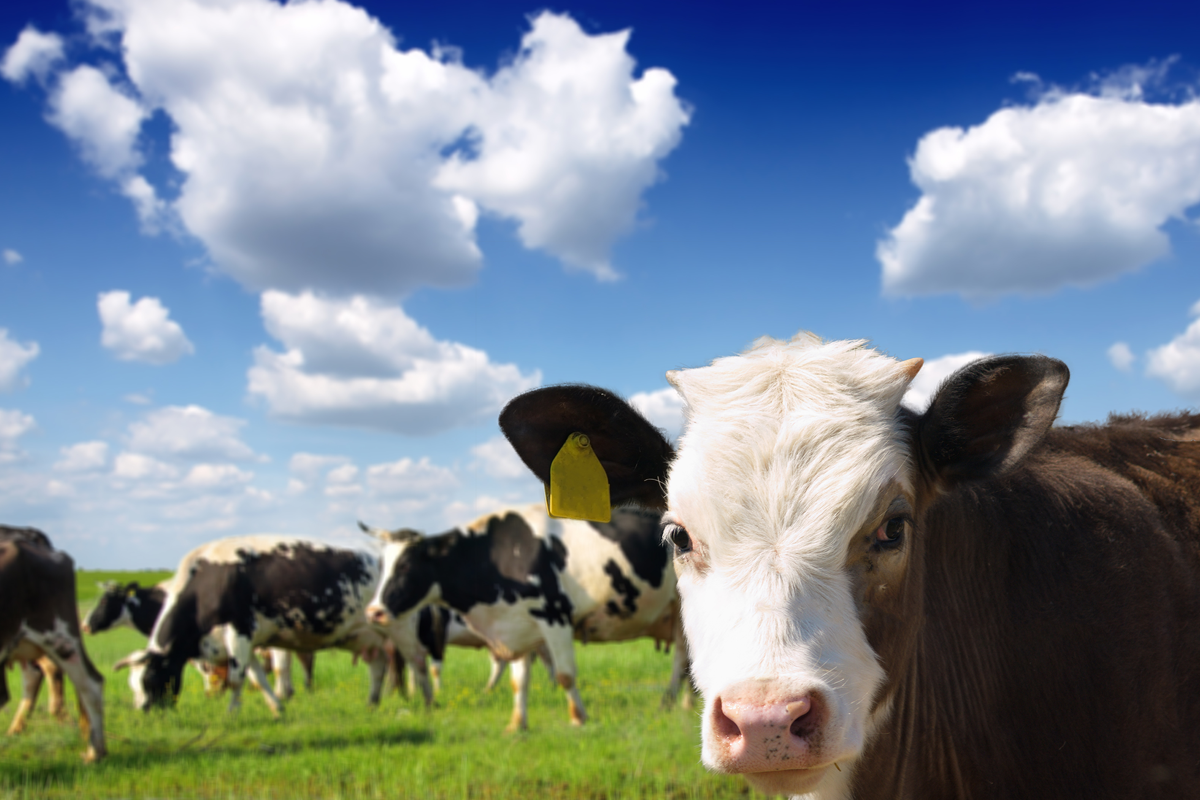
The rate at which any common land will become depleted is not linear. This means that if you have a common area of 600 acres, it won’t be depleted at a steady rate of half an acre per month. The depletion will start slowly, and the depletion rate will increase. The first month it might disappear by half an acre. The next month maybe three quarters of an acre. The next month maybe an acre. Then two. Then four.
We can see this by imagining that we are one of the farmers. Every day we have two choices, we can graze our animals on the common land, or the private land. When the common land is first presented, it’s done under the “everybody share fairly” idea. So no farmer wants to be the first to graze all his animals on the free stuff.
Maybe the first month, each individual farmer doesn’t want to look like a cheater. So he keeps his animal mostly on his own property. Even beyond cheating, few people want to go first. If you can recall any situation where there was a large crowd, and there was some kind of benefit for standing up and going and taking something. At first, one person goes. Then another. Then a few more. Then a stampede.
Cheaters and Social Proof
There are two important idea that make the destruction of the common area increase exponentially instead of linearly. Linear is the same amount of destruction per day. Exponentially means that depletion amount per day increases over time.
Anti Cheating Instinct
Humans have an instinct that makes us sniff out cheaters. The Wason selection task demonstrates this perfectly. When one problem is given as an abstract card problem, few people can figure it out. But when the exact same problem is given in the form of a bouncer trying to sniff out the underage drinkers, everybody can figure it out.
This means humans can only use logic in certain situations. And one of those situations seems to be sniffing out social cheaters. This makes sense if you consider that many of our social instincts are calibrated during the long period of hunter-gathers. These guys were highly egalitarian, and sharing was the rule. So one of our instincts is finding people who seem to be not following the accepted rules of social behavior.
Modern humans are very, very careful of doing anything that makes them look like social cheaters. So when these hypothetical farmers are first starting out, nobody wants to be the guy who is moving all of his animals out into the free area. Nobody wants to eat any more free stuff than anybody else.
Enter Social Proof
Most farmers wouldn’t feel comfortable being the first guy who takes the free stuff. But as soon as one guy does, another guy will have a much easier time. Then when two people are out there in the free stuff, a few more will be out there.
Maybe the first couple of weeks, each farmer has only a couple animals out there. Which makes one more a simple step. Pretty soon each farmer is putting a couple more, then a couple more. Then the tipping point is reached.
Fear Of Missing Out
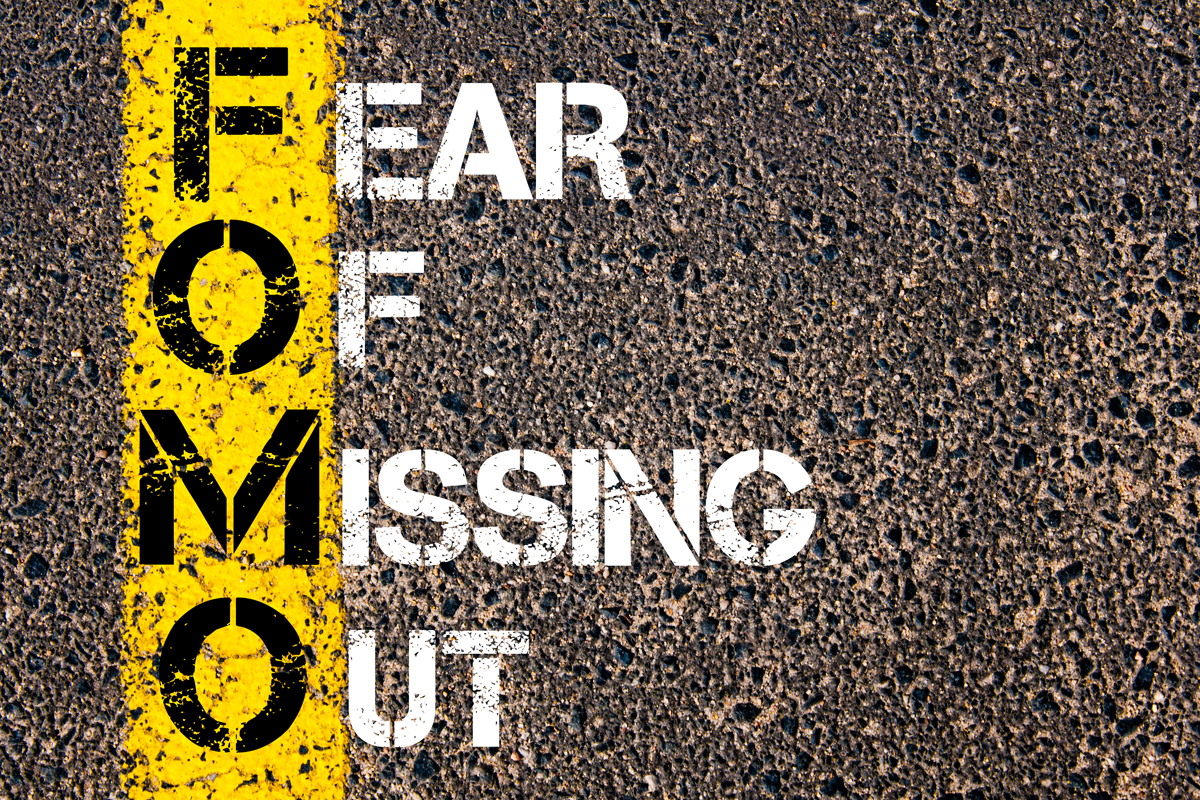
FOMO is a very prevalent motivator. Nobody wants to get left behind. This is the tragic tipping point when everybody sees everybody else feeding freely off the free stuff. Instead of being careful so they don’t become a cheater, enough social proof triggers the FOMO response. Once this tipping point is crossed, the farmers all have the same thought:
I’d better get all my animals out there or all those other guys will get all the free stuff!
Tragic Tipping Point
When this tipping point happens, it’s all over. Nobody holds back. And once this tipping point is crossed, the end is very near. Instead of purposely consuming the free stuff slowly, to be a polite neighbor (or more accurately, not being labeled as a cheater) now all the farmers are gobbling up the free stuff as quickly as they possibly can.
Acceleration Directions
The size of the common area is now decreasing while the rate at which the animals are eating is increasing. The smaller the free area gets, the more this triggers the FOMO response in the farmers, which makes the free area decrease even more rapidly. Before the tipping point when farmers were worried about being labeled as cheaters, each farmer was purposely eating slower than they wanted to.
After the tipping point, their worry about being labeled as a cheater vanished and was replaced by social proof generated FOMO, which made them consume as much as they could, as quickly as they could.
Size Doesn’t Matter
In our example, we had an enclosed space surrounded by the farmland. But this was just to make the mental explanation easier. In reality, all spaces that contain sought after goods that aren’t owned by anybody will eventually succumb to the tragedy of the commons.
Hunted To Extinction
Megafauna are huge animals like wooly mammoths that once walked the Earth. These large animals weren’t owned by anybody. As a result, they were hunted to extinction. You can’t really blame the hunters. Killing one of these big guys would feed your whole tribe for a while, and make you the hero.
Ocean Fish
There are plenty of fish that are in danger of being fished to extinction as well. While a complex topic, there have been plenty of economics plans to address this issue, hoping to put some kind of limits on how much fish each vessel can catch. There’s plenty of moving parts and it’s definitely not an easy problem to solve. Like many economic plans, the guys doing the planning tend to make plans that favor their buddies, who happen to be their biggest campaign donors.
The population of Earth continues to grow, and there are growing demands for food of all kinds. And many of these demands for food include areas of the planet that don’t belong to anybody, and are therefore vulnerable to the tragedy of the commons.
Roommates
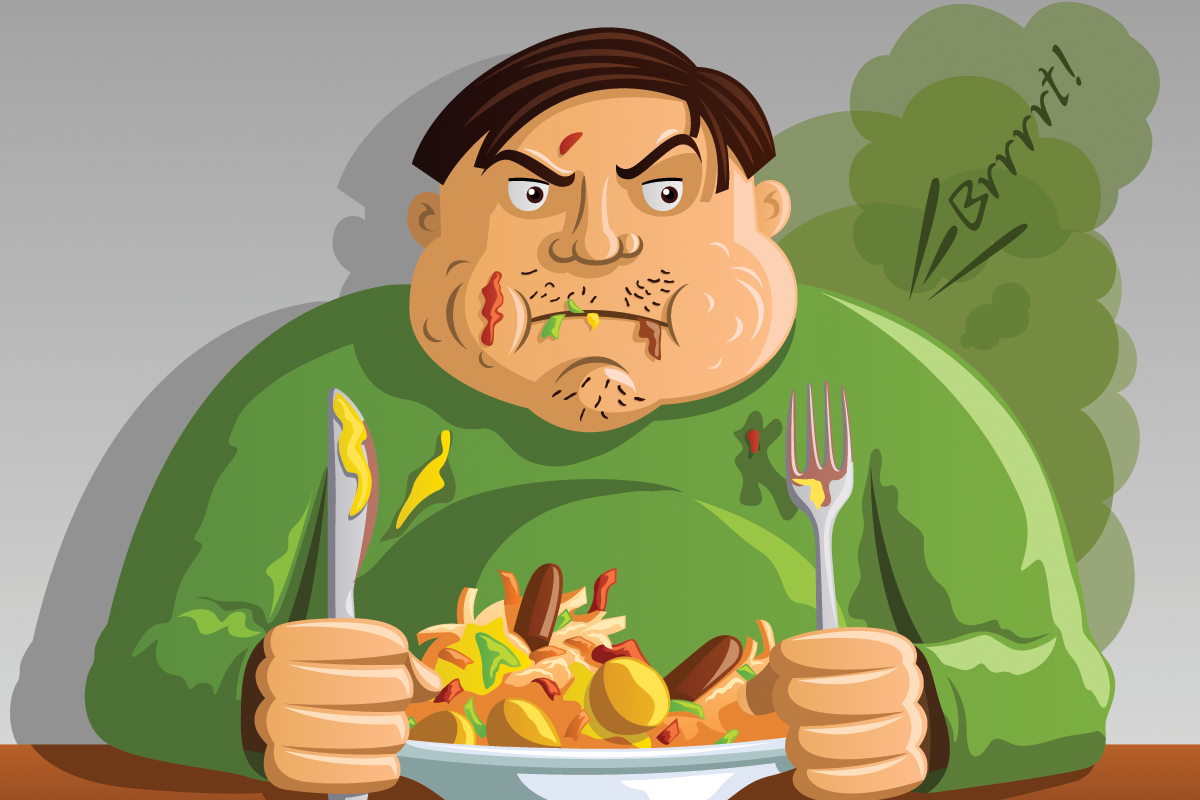
Many roommates pitch in to buy supplies. But if you aren’t careful, meaning if you don’t put a specific limit on usage, soon whatever you collectively purchase will fall prey to the tragedy of the commons, since this common resource is owned by everybody.
Freeway Systems
Most roads are public roads. Meaning they are paid for by taxes, and therefore belong to everybody. Which means nobody has to pay to use them, and nobody that uses them feels responsible or worries about taking care of them. As a result, publicly owned roads (and all publicly owned infrastructure) is in horrible shape. How many streets in your neighborhood have dangerous potholes?
Intangibles
With things like common grass, it’s easy to see how they will eventually get gobbled up first, before privately owned stuff will. But this idea also applies to intangible things and ideas, recognition, validation, etc. It’s not so easy to see this, but we can put pretty much anything into two categories. Things that allegedly belong to everybody (common) and things that only belong to a certain people (private property).
Promises
If you pay somebody to do some work on your yard, a contractor for example, that agreement is between you and them. You have what’s expected all detailed in a contract. You’ve given him a certain amount of money (or promised a payment of a certain amount) in exchange for a certain amount of work. This promise is intangible.
But we can say the same thing about politicians. We vote for them, and they work for all of us. When we pay the contractor to do the work on our backyard, it’s implied that he hasn’t got jobs all over town. He does a job, finishes it, and then moves on to the next one.
But politicians promise things to the masses. To everybody. So in a sense, the future work they have promised us was made to everybody at the same time. Everybody has this idea that the politicians who run society are supposed to provide certain benefits to people. All people. Or at least potentially to all people.
This will end up just like the common grass area of the farmers. At first, nobody wants to be overtly reliant on whatever the politicians can provide. Way back in the day, it was not considered socially acceptable to be on any kind of government assistance. People that bought things with food stamps were embarrassed. We aren’t saying this is good, we aren’t saying this is bad.
But this is very similar to how most of the farmers were a little reluctant to graze on the common grass in the beginning. Slowly, as they started to see other farmers grazing a few of their animals, more and more farmers started grazing more and more animals.
Similarly, when just a few people were reliant on government assistance, it was like the beginning stages of the farm example. Few people were on government assistance, so people that were on government assistant felt very much like social cheaters. They didn’t put in those terms, but going on government assistance, especially if you were employed at one time, was not easy.
Then as time progressed, and politicians made more and more promises, more and more people went on government assistance. This will naturally pass a tipping point where social proof takes over. FOMO will eventually take place, and many people will feel that if they aren’t getting any kind of government assistance, they are missing out.
This is complex, and the FOMO tipping point can be different for different levels (or more appropriately classes) of society. It’s also possible and likely that certain classes can be considered social cheaters by other classes.
This is easy to imagine as different classes of people tend to self-segregate. Poor people live together. Middle class people live together. Rich people live together. It’s very likely that poor people would pass the FOMO point before anybody else.
It’s also likely for different levels of government provided benefits to be delivered differently to different classes. Poor people get direct benefits in the form of food stamps and rent subsidies. Rich people get benefits more obliquely, in the form of complex tax breaks and what is commonly called “corporate welfare.”
But no matter the type of benefits, they will end in a tragedy of the commons endpoint where suddenly there is nothing left.
This is precisely what happened near the end of the Roman Empire. Farmers that had traditionally worked hard to provide food for most of the people realized that they would get more money, for less work, if they gave up farming and went to the city where they could receive government assistance.
When you are working hard, and getting little pay, while many people are not working hard, and getting the same or more pay, FOMO is in full force. It’s easy to feel self-confident due to your self-reliance, but if everybody you know is getting free money or food from the government, it’s only a matter of time before this feeling of self reliance is overtaken by FOMO.
Collapse Of Society
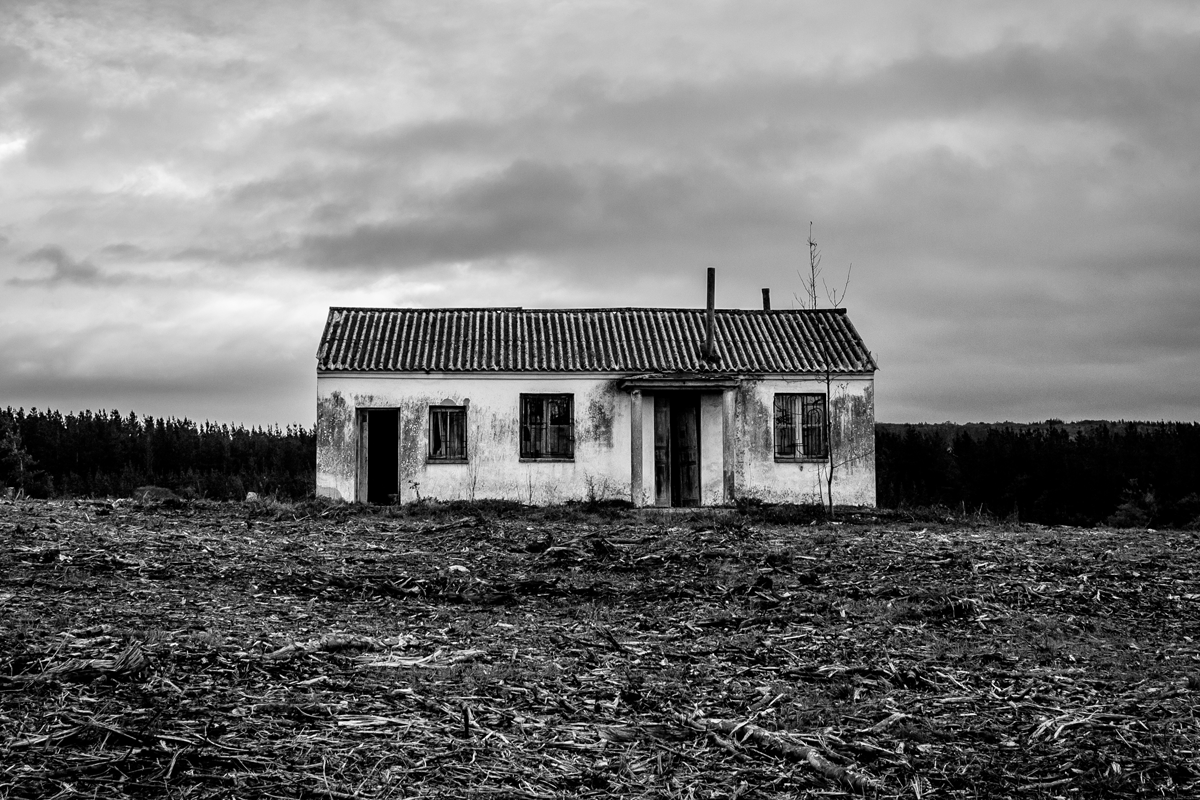
it’s a harsh truth that every single society has failed at some point. When we say “society” and “failed” we mean that every large group of people has gone through some cataclysmic collapse of how they were organized, either in their form of government, or in their form of currency.
For example, French society leading up to the French Revolution was made up of the same people, living in the same geographic area, as French Society after the French Revolution. But the transition between types of organizational structure was chaotic and famously bloody.
Tragedy Of The Commons In Every Collapse
Consider this very basic model for societies that grow, reach a peak, and then collapse. In the very beginning, very little is considered “public.” Most of the stuff is privately owned. As societies grow, it’s easier to feel the need for some governing body of sorts. To protect human rights, to establish a system of laws, to maintain trust in the currency and monetary system.
But as society grows, so does the government. The things that governments promise to everybody in the beginning, basic human rights, a set of laws, a system of currency, are things that the tragedy of the commons doesn’t quite affect.
In the very beginning of societies, governments provide protection against negative things. Nobody wants to take advantage of these things, as nobody is eager to have their rights violated, or have anything done to them that is against the law.
But as societies grow, governments to start to promise positive things to people. Instead of only protecting against negative things (human rights violations, being a victim of a crime, etc.) they promise to give things to people. As soon as this change happens, the tragedy of the commons race is on.
However, they are very clever in saying how they will give free stuff to people. Instead of saying, “vote for me and I’ll give you free stuff,” they things a bit more subtle and say, “vote for me and I’ll protect your human right to stuff.”
This is a clever way of promising free stuff but making it sound like the same “protection against negative” things that governments are supposed to do. But since it is essentially a promise of things that must be produced by other people, the tragedy of the commons race is on.
Production and Consumption
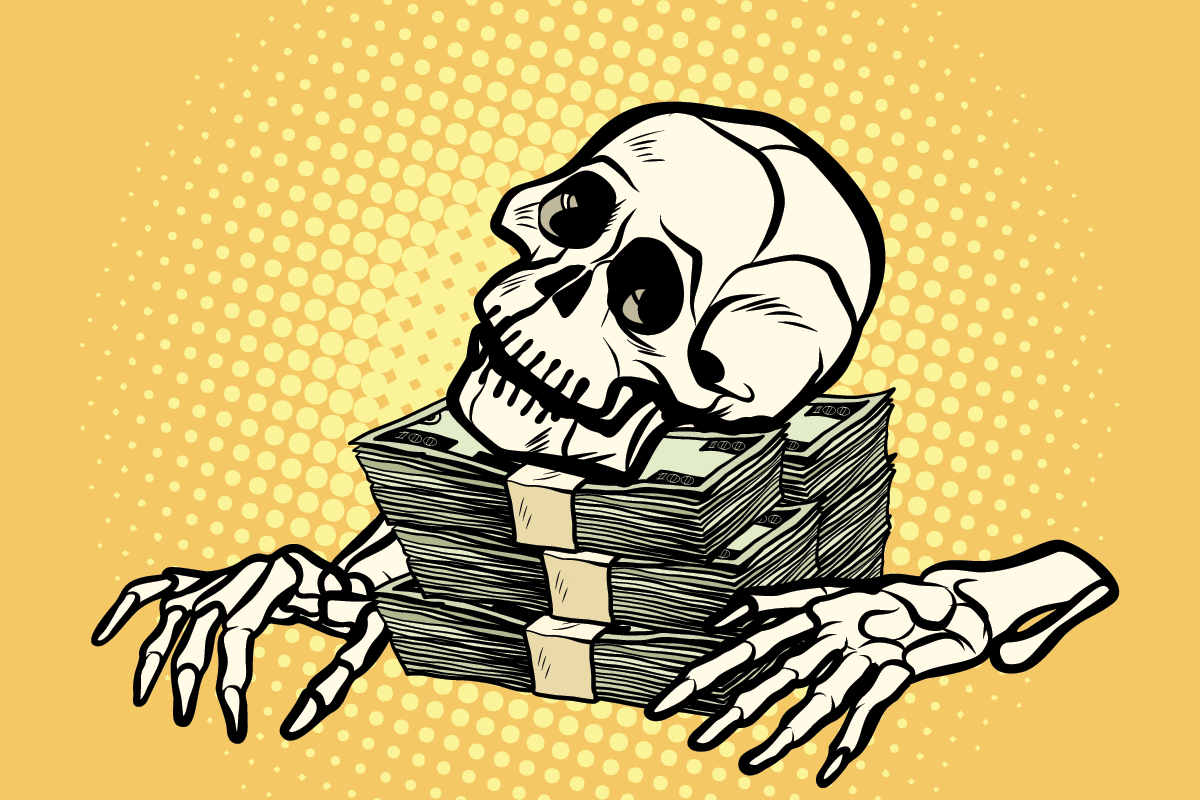
When the farmers are only just beginning to graze their animals in the center common areas, the production is faster than consumption. The rate at which the grass naturally grows is production. The rate at which it is eaten is consumption. Once consumption is higher than production, that is the animals are eating grass faster than it grows, it’s only a matter of time before the grass is gone.
In societies, the same rules apply. The net total production of society is all the things that are produced, including all the income flow that stems from producing goods. The net consumption of society is equally simple. The money that is spent, the goods that are used, the food that is eaten.
Some of things take a long time to be fully consumed. Infrastructure can last decades. But when it finally collapses, it has been consumed and needs to be produced again. (Technically, economics makes the distinction between consumption and depreciation, but essentially it’s the same idea).
Once governments start to promise positive things to people (instead of protection from negative things), the cycle begins. Every person that is receiving government assistance that isn’t involved in any type of production is a net drag on society. This is the source of feelings of shame when few people are receiving any government assistance. Everybody around them is being productive in some way, and they are not.
But once social proof kicks in, and more and more people are consuming without producing, it’s only a matter of time. Large complex societies, even globally connected societies are still bound the same natural laws that govern a patch of grass. If the grass is being consumed faster than it is being produced, it will eventually vanish.
Ancient Collapses – Ecological and Monetary

All previous collapses have been a mix of financial and economic failure, or ecological and environmental failure. We’ll look at two extremes.
Ecological Failure
When a society is literally consuming the natural resources directly (much like the animals grazing in the common area) faster than the natural resources are capable of replenishing themselves, the society will reach a natural endpoint. We can imagine that below a certain size, a population can be in equilibrium with its environment. But above this level, the population will require more raw materials (food and materials for shelter) greater than can be provided by the natural environment. When this tipping point occurs, it’s only a matter of time.
Economic And Financial Failure
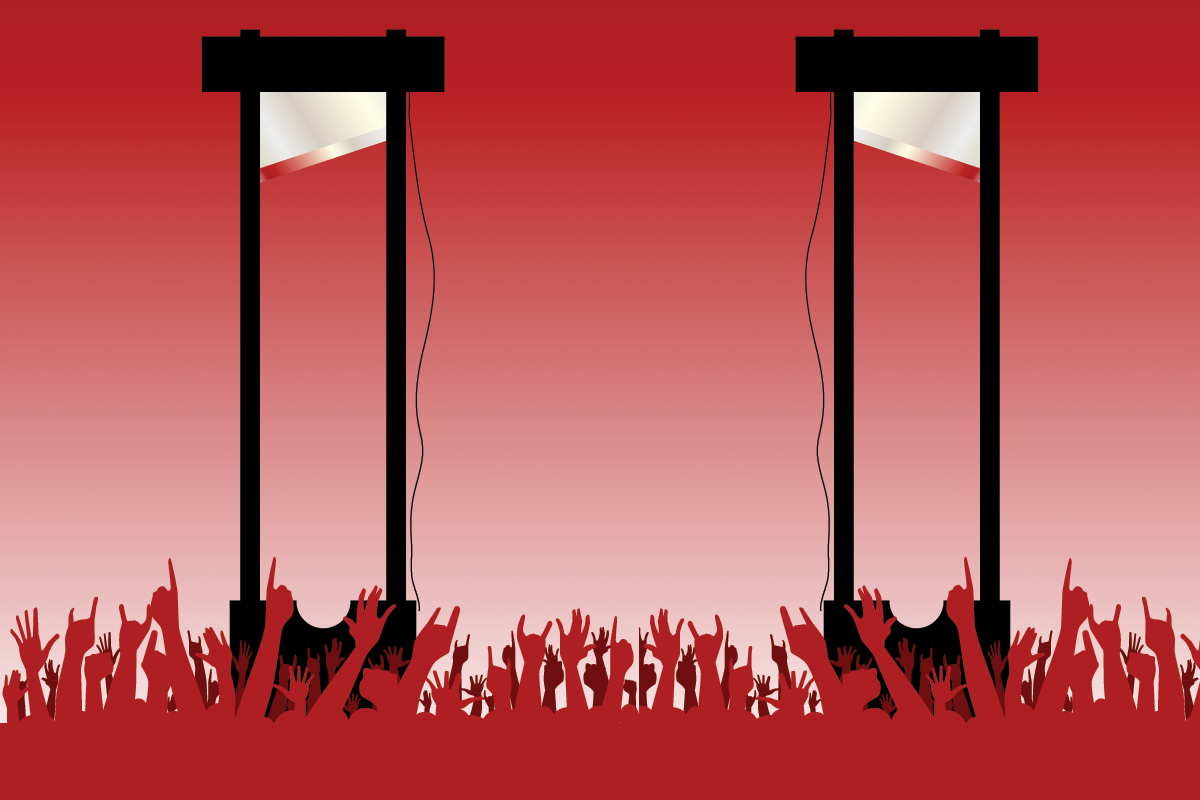
Modern societies use some form of currency as an intermediary between the natural resources and the actual people. With a hard (un-expandable) money supply, people are forced to live within their means on a large scale.
Supply and Demand
As soon as any natural resources begin to deplete, the law of supply and demand will make their prices higher. Anybody that uses these natural resources as part of their production must include this larger price in their final product. This means everybody that uses this raw material in any form (producers of every stage all the way up to the end users) will know immediately that this resource is dwindling due to the price increase.
At this point, they have two choices. One is to pay the higher price. Two is to find a replacement. Eventually the price will get too high for everybody, and nobody will be using this resource any more, as it is just too expensive. This means there will be an alternative, or whatever is being made with that resource will simply cease to exist.
This also gives everybody involved (consumers and producers) plenty of lead time to think about the problem. To figure out how to naturally produce more of the raw material through innovation and technology. It also means that once a raw material becomes more expensive due to its dwindling supply, everybody in society knows about it very quickly.
This supply and demand pricing requires that the money system be stable. Meaning there can’t be an increasing supply of money. The supply and demand equilibrium require that the amount of currency in society be the same. This is not intuitive, and beyond the scope of this post, but if the supply of money is continually increasing (faster than the supply of things to buy with that money) then the price of everything will slowly increase over time.
This idea of “consistent inflation” pretty much destroys the ability of the law of supply and demand to keep everything in equilibrium. Which is why a financial collapse happens when the price of goods become so chaotic that while there is plenty of stuff, (unlike ancient societies that literally ran out of physical stuff) the stuff has become too expensive for anybody to afford.
These financial collapses have been responsible for all catastrophic societal failures in recent times. The French Revolution, The Tiananmen Square Incident, the more recent Arab Spring uprisings, and the current disasters in Venezuela are all financial-based catastrophes.
Tragedy Of The Common Money
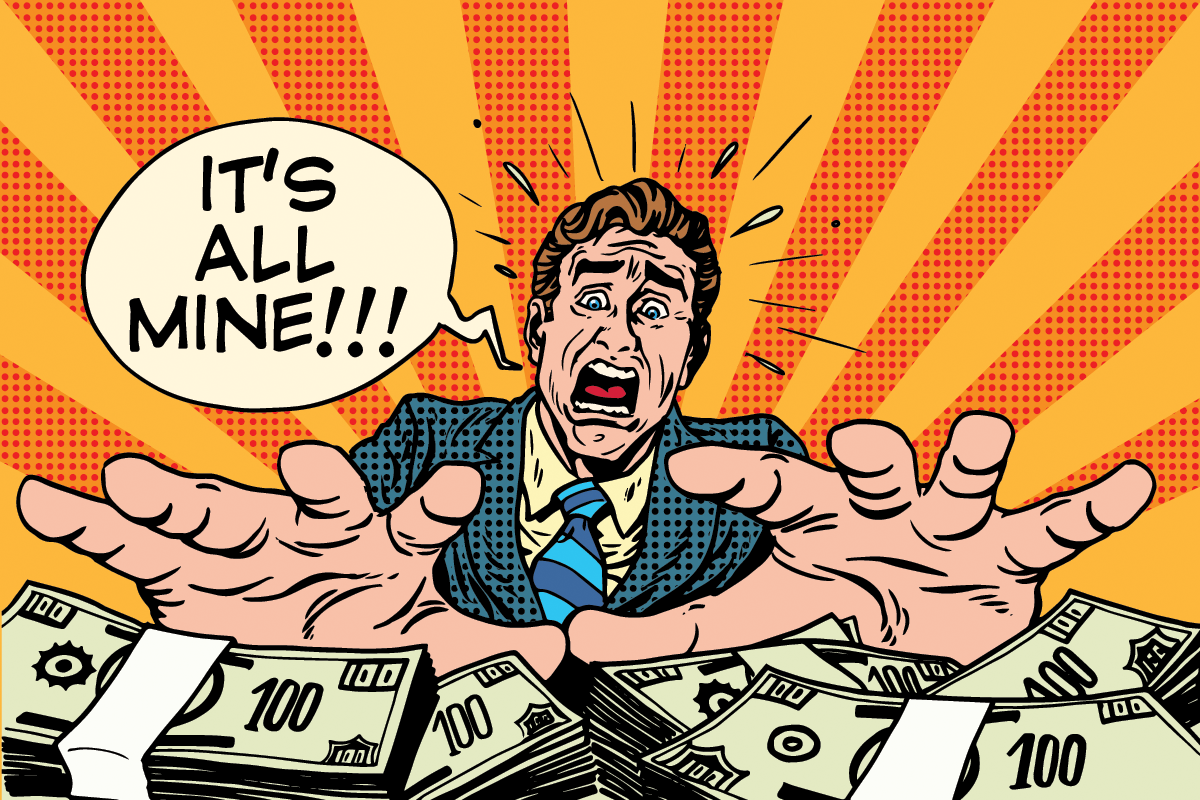
This all stems from the governments promise to pay for things in order to maintain their power, and using printing presses to create money out of thin air to pay for these promises. This works for a while, until the country is so flooded with money, the prices of everything go up beyond affordability.
The main takeaway is that all government and society failures have their roots in the tragedy of the commons. When too many people try to take advantage of a limited amount of “free” resources that allegedly belong to “everybody.”
Personal Responsibility
All tragedy of the common failures are when a resource is being consumed faster than it is being produced. When there is financial irresponsibility on the part of the governments, who were given power in part to protect the financial integrity of the country, the variables are many and confusing.
The best response is to keep close tabs on your own productivity and consumption. The best response from any individual is to always make your own consumption is less than your production. Many people have been brainwashed by governments that they don’t need to save for the future, as the government is taking care of them.
Unfortunately, this system is near a breaking point. Too many people have been convinced their futures are set because of government promises. But these promises are not immune to a tragedy of the commons collapse. Unfortunately, it is much worse than our original farming example.
At least our hypothetical farmers had their own private land to fall back on. Most people today do not. Which means it is your responsibility to create your own private stock of stuff, whatever that may be. If you were one of those farmers and you were utterly dependent on the common grass to feed your animals, you would be ruined financially once the common grass was depleted.
Don’t make the same mistake in your own personal life. The best thing to do is to start living within your own means, as much as possible. Because as a whole, the common promises that everybody is laying claim to are disappearing quickly. We are well past the FOMO tipping point.
Learn More
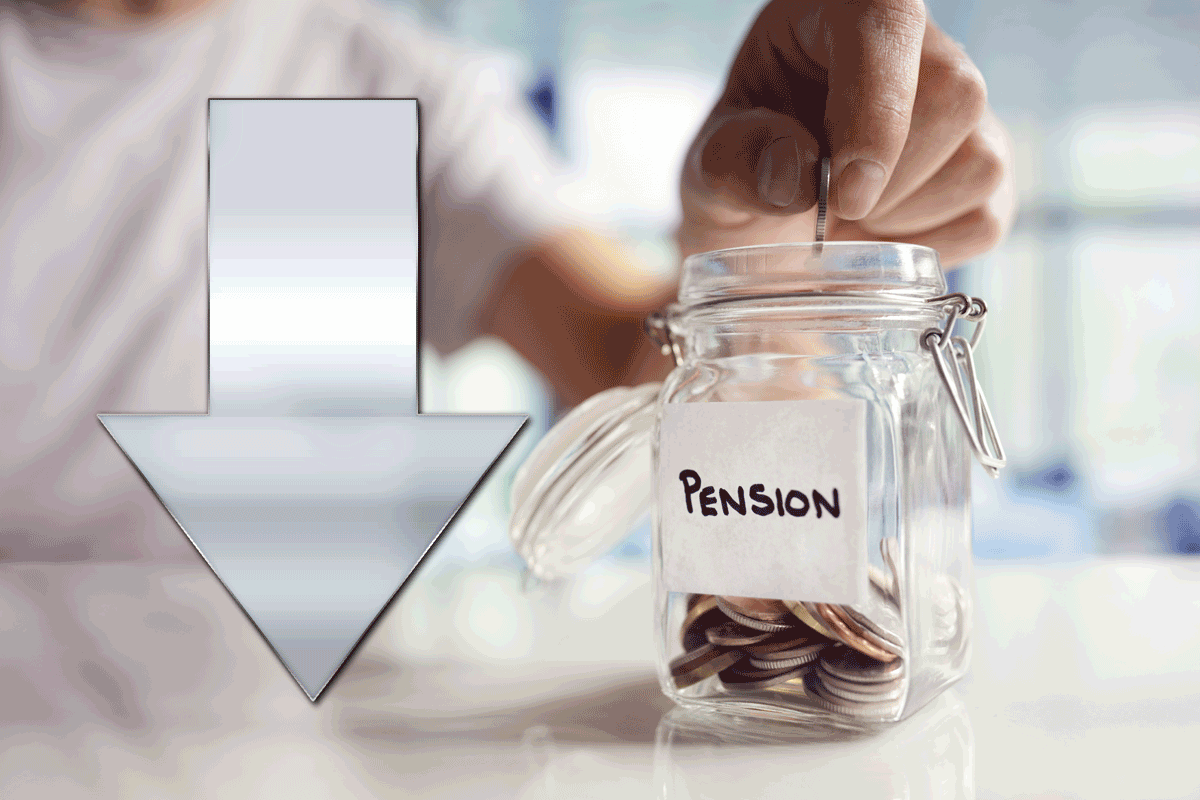
Mind Persuasion has plenty of books and courses to help you maximize personal productivity.
Mind Persuasion Books
Mind Persuasion Courses